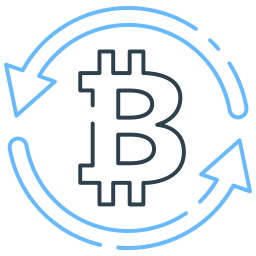The blockchain space has witnessed tremendous growth over the years, with numerous innovators vying for a spot at the forefront. Among these innovators, Solana and Cardano have emerged as two of the most prominent players. In this article, we will delve into the world of Solana vs Cardano and explore their respective features, functionalities, and innovations that set them apart from one another.
The debate between Solana and Cardano has been ongoing for quite some time now, with each side presenting its unique selling points. Both platforms have gained significant traction in the blockchain space, and it’s essential to understand which one is more suitable for your needs. In this article, we will analyze the key differences between Solana and Cardano, helping you make an informed decision.
One of the primary reasons for choosing a blockchain platform is its ability to process transactions efficiently. Both Solana and Cardano boast impressive transaction processing capabilities, but they differ in their approaches. Solana utilizes a proof-of-stake (PoS) consensus algorithm, which allows it to achieve faster transaction times compared to traditional PoW-based platforms. On the other hand, Cardano employs a hybrid consensus model that combines PoS with a voting mechanism to ensure network security.
Another crucial aspect of blockchain platforms is their scalability. Both Solana and Cardano have made significant strides in this area, but they employ different strategies. Solana’s proof-of-stake algorithm enables it to process up to 65,000 transactions per second (TPS), making it one of the fastest blockchain platforms on the market. In contrast, Cardano has achieved a TPS of around 25-50, although its scalability is still improving.
Smart contract functionality is another critical aspect of blockchain platforms. Both Solana and Cardano offer smart contract capabilities, but they differ in their approaches. Solana’s blockchain supports the development of decentralized applications (dApps) using its own programming language, Solana Program. On the other hand, Cardano has partnered with the Solana Foundation to integrate its own smart contract platform, Daedalus.
Security is another essential aspect of blockchain platforms. Both Solana and Cardano prioritize security, but they employ different strategies. Solana’s proof-of-stake algorithm ensures that nodes on the network are incentivized to participate in validation, reducing the risk of 51% attacks. In contrast, Cardano’s hybrid consensus model provides an additional layer of security through its voting mechanism.
Another significant difference between Solana and Cardano lies in their development teams. Solana is backed by the Solana Foundation, a non-profit organization that aims to promote blockchain innovation. On the other hand, Cardano has been developed by IOHK (Input Output Hong Kong Limited), a company co-founded by Charles Hoskinson, one of the founders of Ethereum.
The choice between Solana and Cardano ultimately depends on your specific needs and priorities. If you’re looking for a platform with fast transaction processing times and high scalability, Solana might be the better choice. However, if you prioritize security and are willing to invest time in learning its smart contract functionality, Cardano could be the way to go.
In conclusion, both Solana and Cardano are innovative blockchain platforms that offer unique features and functionalities. By understanding their strengths and weaknesses, you can make an informed decision about which platform is more suitable for your needs. Whether you’re a developer looking for smart contract capabilities or a user seeking fast transaction processing times, there’s a blockchain platform out there that can meet your requirements.
Tags: Solana vs Cardano Blockchain Innovations, Bitcoin Alternatives, Cryptocurrency Trading Platforms



